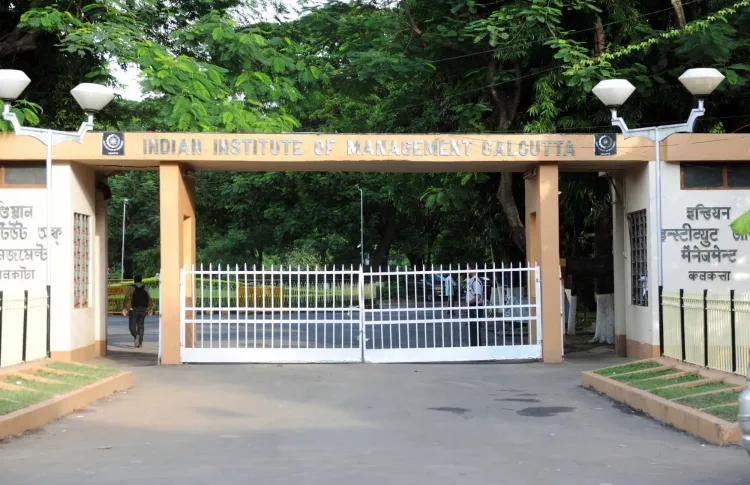Is the State Failing to Support the IIM-C Rape Victim in the Investigation?

Synopsis
Key Takeaways
- Victim cooperation is crucial for legal proceedings.
- State responsibilities include protecting and supporting victims.
- Societal pressures can deter victims from participating in investigations.
- Legal assistance is necessary for victims to navigate the process.
- Potential for out-of-court settlements exists in such cases.
Kolkata, July 23 (NationPress) Following the victim's decision not to participate in the investigation regarding the alleged IIM-C rape incident, legal experts in Kolkata have indicated that it reflects a significant failure on the part of the West Bengal Police and the administration, as they have not succeeded in persuading her to offer even minimal cooperation in the inquiry process.
The accused, a second-year student at the Indian Institute of Management Calcutta (IIM-C), was granted bail by a lower court last week, primarily due to the victim's lack of cooperation — including her refusal to record her statements before a judicial magistrate, undergo a medico-legal examination, and surrender the clothing she wore during the alleged incident to the investigating officials.
Additionally, the victim's family has not engaged legal counsel for their representation in this case, contrasting with the R.G.Kar rape-murder case and the Kasba Law College rape case. They have entrusted the matter entirely to the public prosecutor. On Wednesday, IIM-C granted permission for the accused to continue attending classes, although he is prohibited from residing in the campus hostel.
Senior advocate of the Calcutta High Court, Kaushik Gupta, stated to IANS that the state holds the primary obligation to encourage her to come forward and provide her statement. “There could be various reasons for her non-cooperation. Societal pressure may be one factor, and the fear of enduring a lengthy legal process cannot be overlooked. Has she lost faith in the current system? Regardless, the state must assist her by providing access to a counsellor or psychologist and encourage her to step forward. Furthermore, the state ought to offer her a witness protection scheme,” Gupta remarked.
Calcutta High Court advocate Firdous Shamim emphasized that the state must not evade its responsibility in this case. “It is a matter of state versus individual. Here, the state is obligated to prosecute on behalf of the complainant. If the victim is not receiving support from the government, it signifies a failure on the state's part. The complainant deserves protection and legal assistance,” Shamim asserted.
He also noted that victims often hesitate to come forward due to societal stigmas and the fear of being identified as a rape victim. “If she fails to appear, it could lead to allegations of malicious prosecution. Consequently, the complainant may face charges for attempting to falsely accuse the accused,” Shamim warned.
In an interview with IANS, Calcutta High Court advocate Sabnam Sultana indicated that in such cases, it is crucial for the victim to document her statement under Section 164 of the Criminal Procedure Code (CrPC).
“There are many reasons for her hesitance. However, recording her statement is vital. The absence of her testimony can significantly impact the case, leading to potential acquittal of the accused due to insufficient evidence against him. The state must aid her in this matter and motivate her to come forward,” she added.
Moreover, the three advocates consulted by IANS did not dismiss the possibility of an out-of-court resolution regarding the case.










